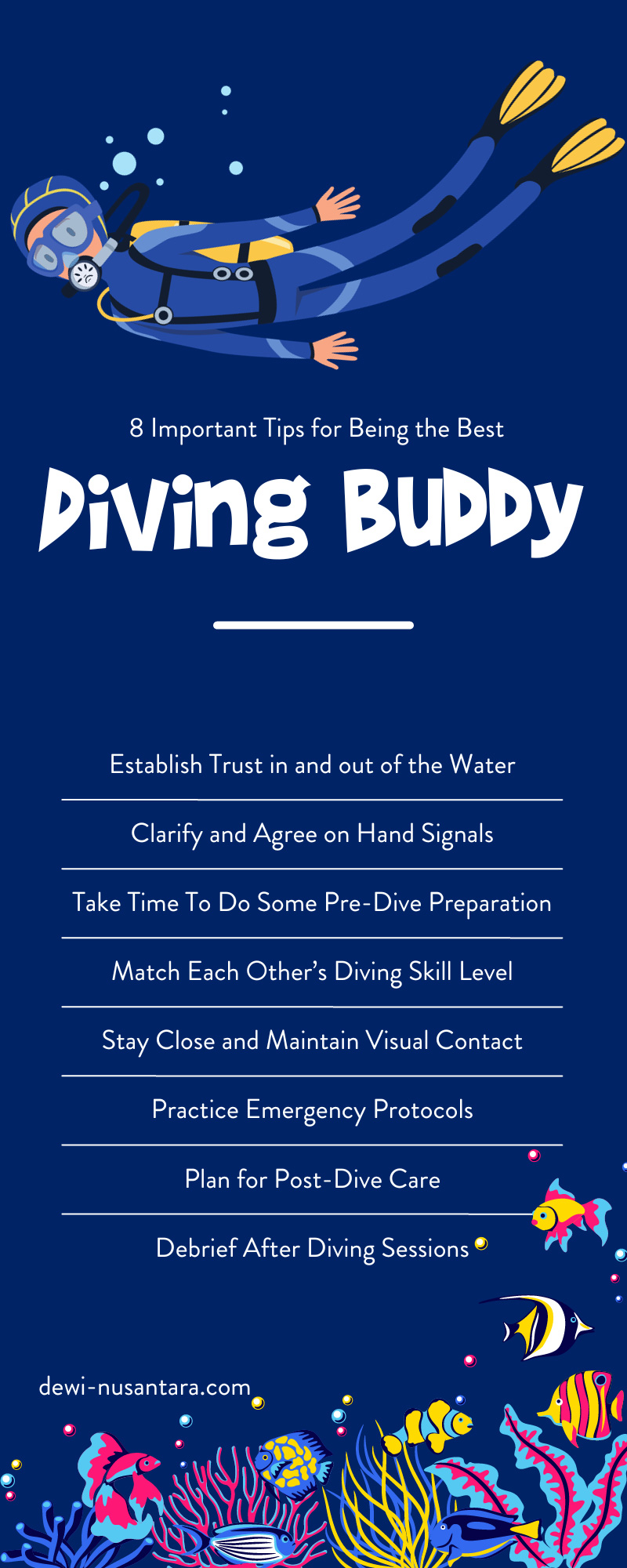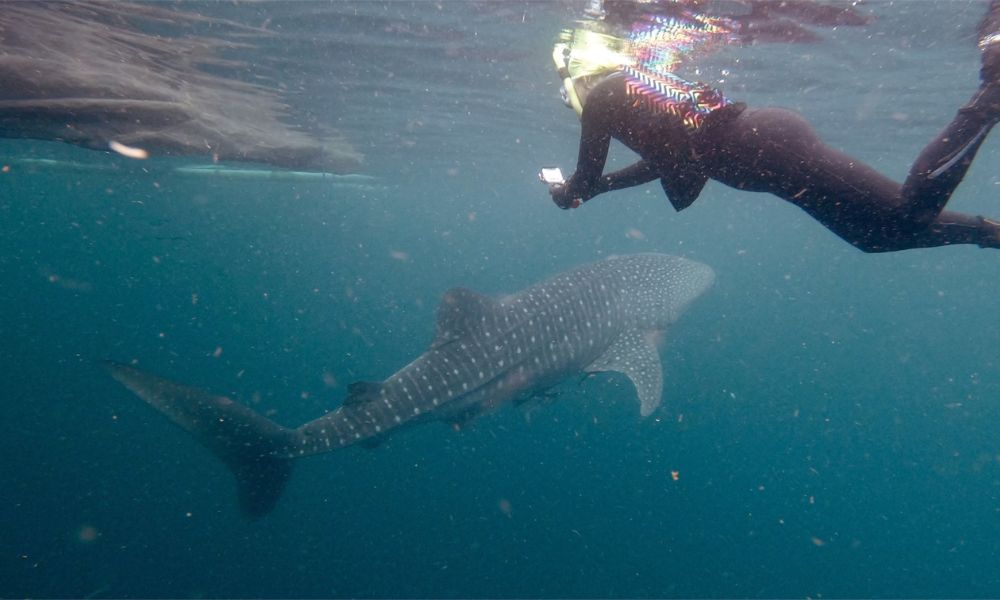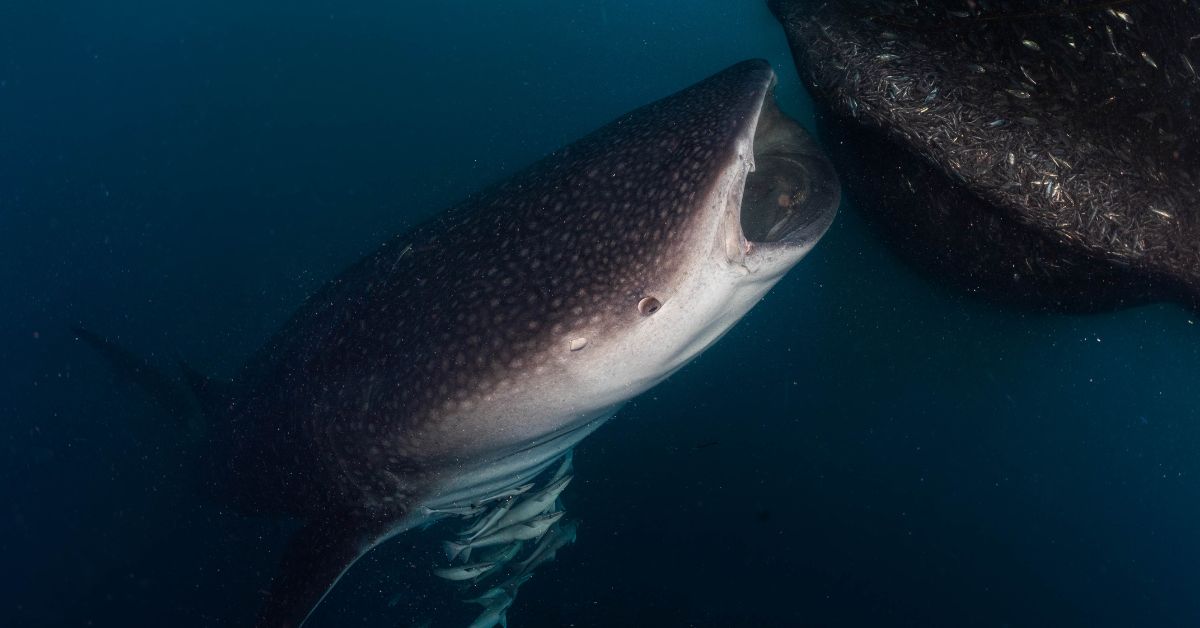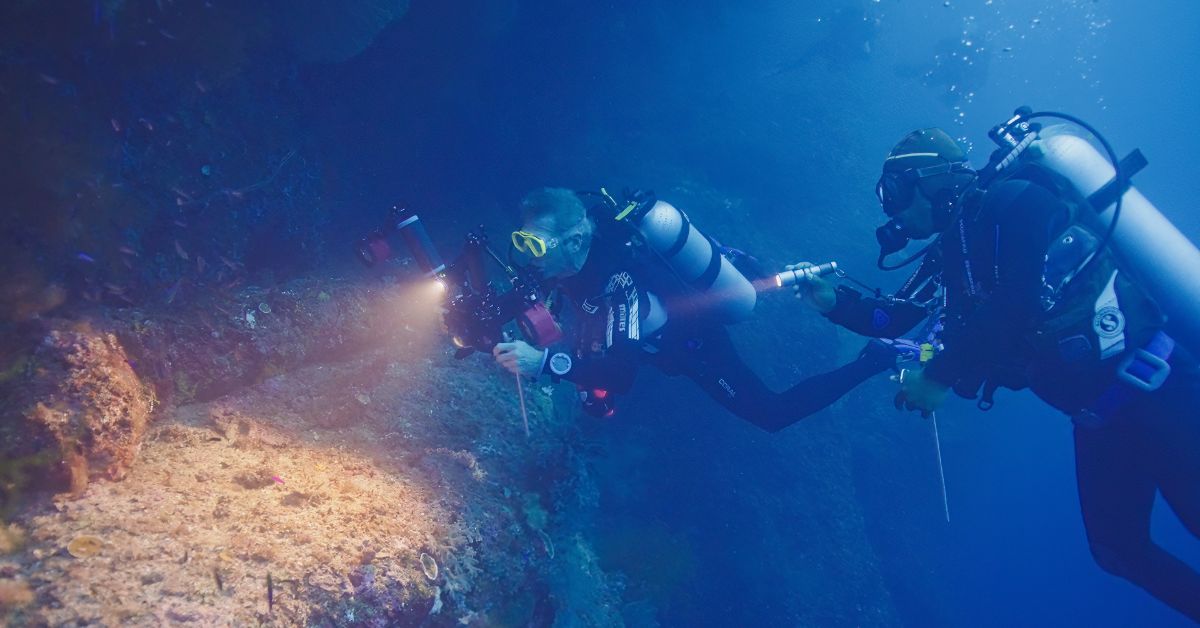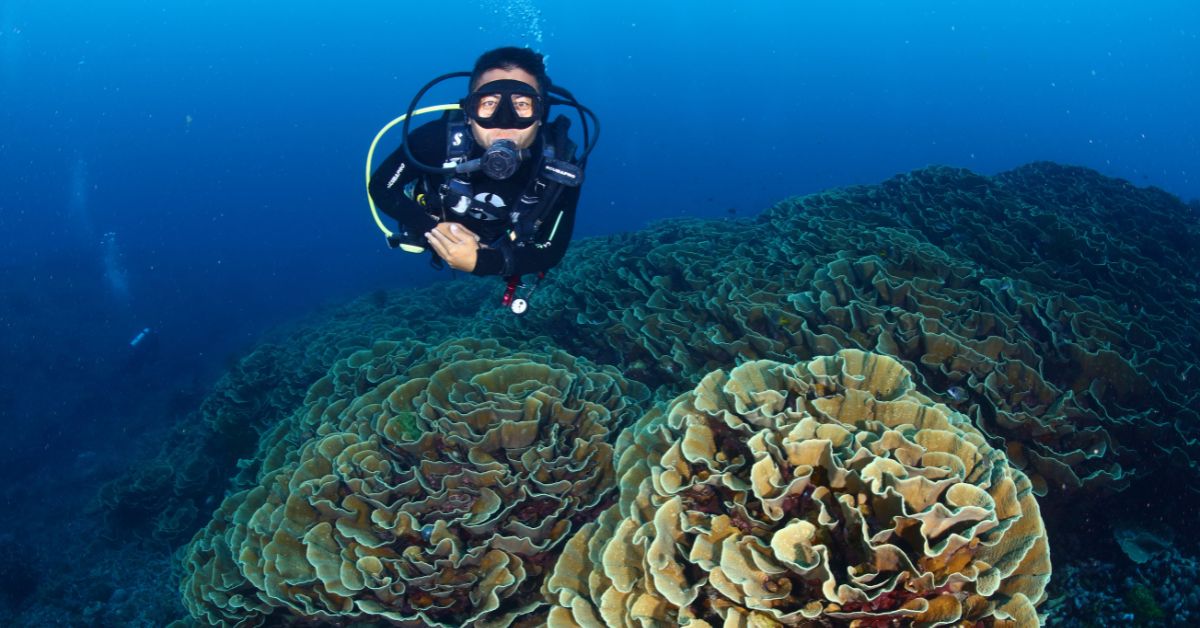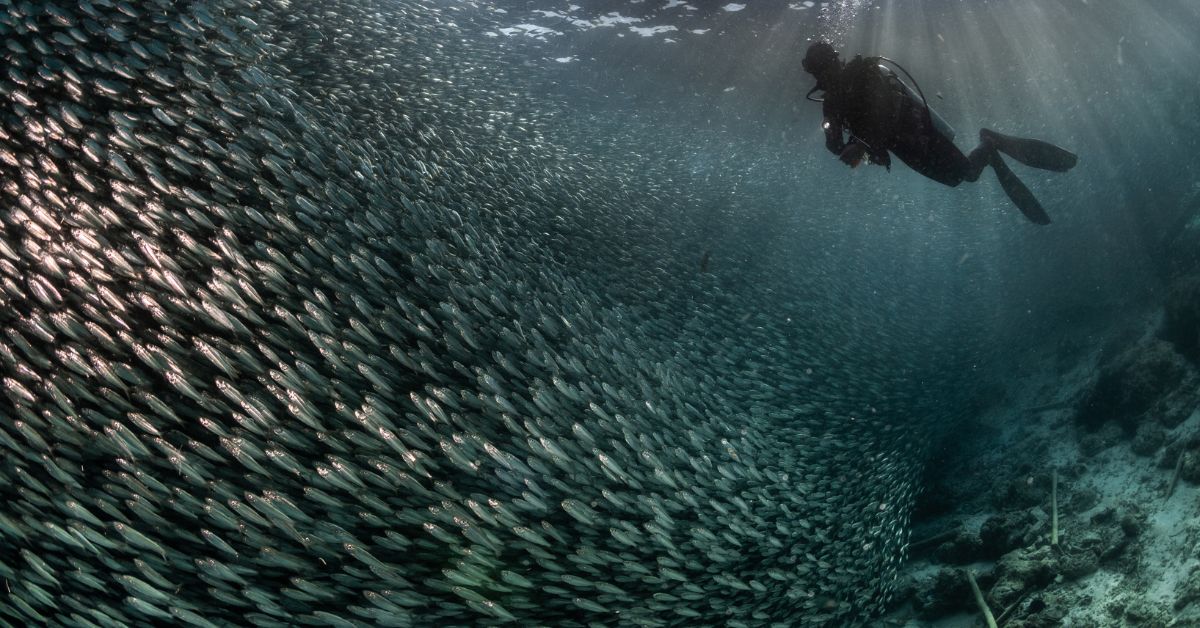Diving buddies are essential to any dive. They provide mutual support and assistance on many aspects of a dive, from preparation to emergency responses. A reliable and responsible diving buddy guarantees safer and enhanced diving experiences.
Improve future dives with a strong diving buddy system. Become the best diving partner by checking out these important diving buddy tips.
Establish Trust in and out of the Water
Any partnership in life, whether romantic, work-related, or in sports, relies on trust to maintain its foundation. Trust fosters emotional bonds and demonstrates your support and collaboration within the partnership.
Diving is an exhilarating but high-risk activity. When exploring unfamiliar waters and engaging in a physically demanding pursuit, trusting in your diving buddy improves your experience in many ways. A trustworthy diving buddy reduces risks and makes dives more comfortable and enjoyable. Establishing trust—in and out of the water—ensures you feel supported while diving. Having that reliable support system mitigates anxieties and allows you to enjoy your adventure more.
Trust manifests in many forms, from boosting your partner’s confidence to demonstrating competence. You can establish trust with your diving buddy by:
- Taking initiative on different responsibilities, from planning to communication
- Demonstrating your diving expertise
- Listening to and implementing feedback
- Respecting boundaries
Establish trust with your diving buddy to strengthen your relationship and boost confidence while diving.
Clarify and Agree on Hand Signals
Communicating underwater is a little more challenging than conversing on land. Hand signals are the main form of communication while in the water. Although there are common hand symbols and motions for certain expressions, such as a thumbs-up indicating something positive, hand signals come in many variations and interpretations.
Clarifying and agreeing on hand signals with your diving partner ensures that you can easily and effectively communicate with one another while underwater. Being on the same page about a hand signal’s interpretation eliminates miscommunication risks. Often, a thumbs-up represents something good, but in certain diving communities, the same signal indicates the need to ascend. Some important communication diving terms you should establish and clarify with your partner include:
- Decent and ascent
- Stop
- OK
- Half tank
- Low on air
- Check air
- Share air
- Danger
- Vessel
- Help
Establishing hand signals for different marine life also provides divers with valuable terminology, enhancing underwater communication. A reliable and beneficial diving buddy knows how to communicate effectively, whether it’s about observations, air tanks, or directions.
Take Time To Do Some Pre-Dive Preparation
Pre-dive preparations help your dives go smoothly, safely, and according to plan. Lack of preparation risks putting you in dangerous situations such as swimming with low air tanks or broken equipment. Pre-dive preparations often involve:
- Equipment assembling and evaluation
- Familiarizing yourself with one another’s diving preferences
- Establishing communication protocols
- Going over safety procedures
- Checking diving conditions and weather
- Creating a dive plan
- Planning decompression halts
The more prepared you are, the fewer the risks you face. Take the time to do some pre-dive prep and increase your chances of a successful dive.
Match Each Other’s Diving Skill Level
A well-matched diving pair includes individuals with the same skill level. Having the same skill level as your buddy ensures you both can swim on the dives, navigate the same underwater wildernesses, and offer assistance. Incongruent skill levels put you both at risk, leaving each other vulnerable and unprepared during certain dives. Maintaining the same skill level as your partner keeps you well-equipped and prepared to assist your fellow diver.
Stay Close and Maintain Visual Contact
Diving buddies should stick together—literally. Staying close to one another and within visual contact ensures you can quickly and effectively reach one another if an issue arises. Staying close to one another is also essential when diving in a buddy system because your main form of communication is reliant on visual comprehension. A general rule is to always remain in sight of one another and ideally stay close enough that it only takes two seconds to reach each other.
Practice Emergency Protocols
Diving emergencies can come in many forms and levels of severity. Practicing emergency protocols with your buddy ensures that you can both react efficiently and effectively in any emergency. Some important emergencies to study up on before diving with one another include:
- Wildlife attacks
- Hypoxia
- Nitrogen narcosis
- Barotrauma
- Equipment malfunction
- Out-of-air emergency
- Separation
- Severe currents
- Fatigue and exhaustion
The more you train for emergency situations, the easier it will be to react correctly when issues occur. As a buddy, no matter the issue at hand, it is important to remain calm. Panic can spread quickly. Staying calm keeps you both level-headed and gives you more control over the situation. In the water, you are responsible for your buddy. Proper emergency protocol education empowers you to provide the best care and support for your buddy while on dives.
Plan for Post-Dive Care
The buddy duties don’t stop after you resurface and return to the vessel. Post-dive care plays an influential part in your well-being and future dives. After a dive, check in with your buddy, encourage them to rest and rehydrate, and monitor for decompression illness. Regular post-dive check-ins allow you to notice if your buddy experiences post-dive ailments and assist them.
Along with checking in on one another, post-dive routines also involve proper equipment care. Rinsing your equipment, drying it, and evaluating for any damage helps you and your buddy prepare for the next dive.
Debrief After Diving Sessions
Debriefing your dive sessions allows you and your buddy to assess what went well during the dive and what you can improve during future excursions. Do you need to change hand signals? Was the depth OK? Did you handle any emergencies well? Discussing and evaluating your dives helps you improve your skills and your role as a buddy.
On the Dewi Nusantara, our divers’ safety is a priority. Along with our professional diving team, our use of the buddy system guarantees safer and enhanced dives around the Indonesian waters. In a large underwater wilderness such as Raja Ampat, diving buddies are essential for keeping everyone accounted for. On our Raja Ampat liveaboard, our professional dive team and your fellow divers are your buddies, assisting and joining you as you explore one of the richest dive spots. Knowing how to be the best diving partner and keeping these diving buddy tips in mind ensures you can look after your fellow divers while exploring Indonesia’s underwater wildernesses.
